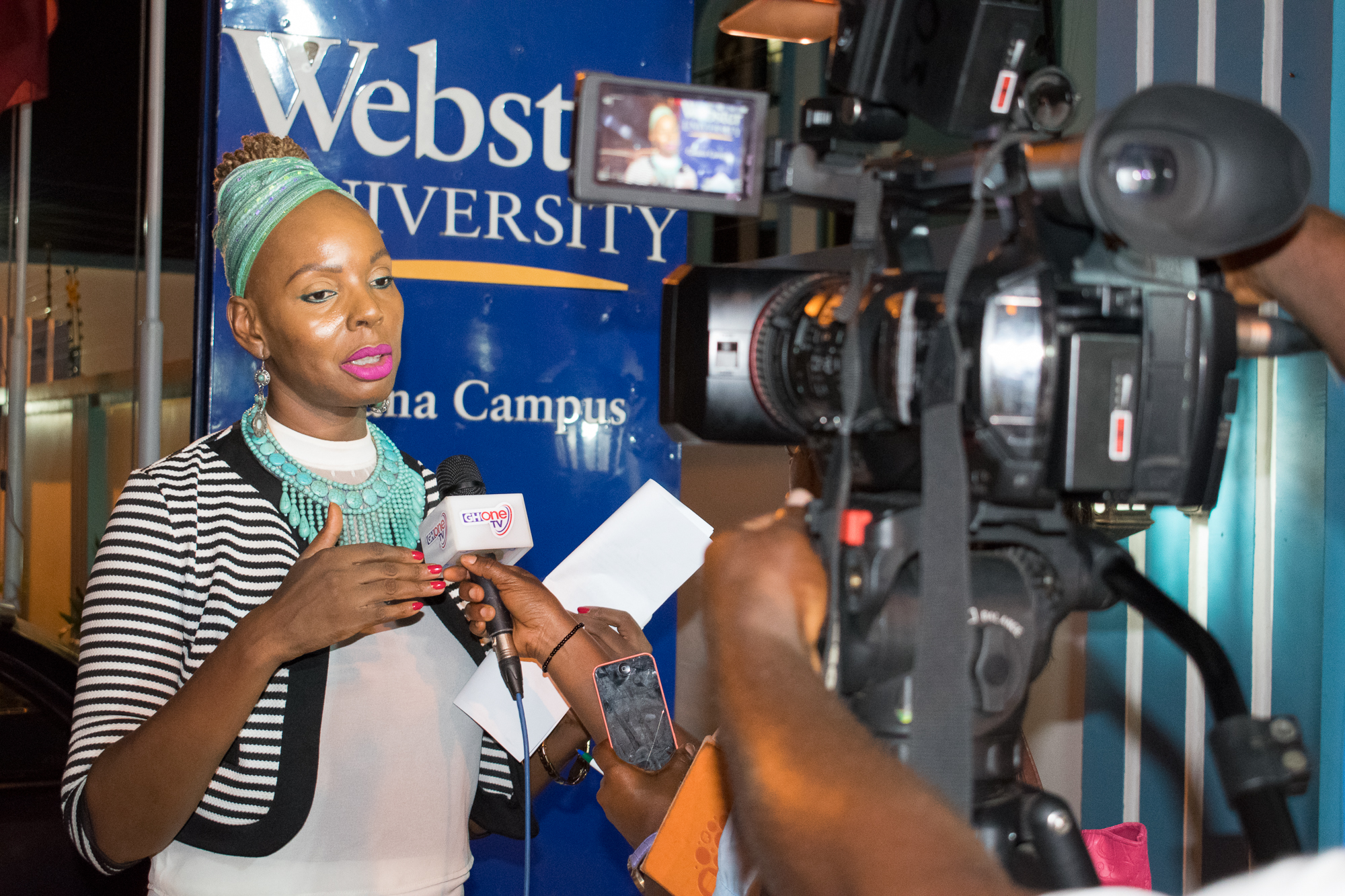Three fake degrees. Allegedly. So says the Ministry of Education about SSNIT’s Management Information Systems Head, Dr. Caleb Afaglo. He disputestheir claim. They stand by it. An investigation ensues.
SSNIT swallowed $76 million dollars to create systems to shift a mountain of paperwork into a paperless process. It was supposed to be more efficient, easier to engage and eliminated – or at least profoundly reduced – the sheer numbers of complaints SSNIT consistently faces.
No money. No system. Debate, anger and outrage are once again across our airwaves as details of this latest disaster emerge. Dr. Aflago is now the focus of that outrage.
Newspaper reports reveal red flags were raised regarding Dr. Aflago’s suitability for the post. They were ignored. Former SSNIT Chair Mr. Ernest Thompson chose Dr. Aflago despite concerns, reports and red flags.
SSNIT’s current debacle reflects a broken system. Dr. Caleb Afaglo is a symptom of a deeper cancer.
It’s one that features government appointments of Boards and Chairs, a broken education system and a society infatuated with certificates rather than skillsets.
Politicized appointments of bodies like SSNIT’s Board and Chair can all too often become a cemetery for competence. It allows nepotism to flourish and it rewards loyalty rather than revering excellence. Such recruiting methods continue to protect a cycle of scandals that result in squandered, disappeared money followed by revelations of poorly managed organizations.
Who pays? Who profits?
We the citizens pay. Every single time. SSNIT’s case is particularly bad. It is that body that deals with pensions. It is especially galling precisely because senior citizens are so affected. They are those who have worked entire lives and are seeking some return on a profound investment. That return has constantly been challenged due to SSNIT’s failures. Right now it is being rubbished with this latest debacle.
SSNIT stands in a long line of such disasters.
We don’t yet know if the degrees are fake. Let’s assume for a moment they are. Why would anyone go to the trouble of faking potentially three degrees? Maybe because Ghana has become a society that adores the certified and ignores the skilled. Skills minus certificates too often render you invisible to progress, power and profit in today’s Ghana. That does not excuse his actions if the degrees are fake. It should perhaps prompt a society to reflect on its direction.
We are a nation that is over certified but under skilled.
Growing concern exists about the extent to which the education we receive serves this project of nation building.
Countless discussions reveal university graduates ill equipped for the market. We have long lamented Ghana’s chew and pour education system where children swallow huge amounts of information, vomit it over exam papers and proceed proudly to the next tier of education, vomit intact, skills questionable.
September is the month when Free SHS is launched. This considerably expands access to education for millions. There is a second hurdle: to transform what we have come to define as education in this country.
This education system served colonizers. It was designed to discourage critical thinking. And it worked. It was designed to reject ideas and revere authority. And it worked. It was designed to destroy minds and create machines. And it worked. It was designed to spit out employees not encourage entrepreneurs. And it worked.
And yet, all broken systems fail to break all those within them. We know this precisely because this is a nation that has created greatness, continues to do so and has so many budding entrepreneurs. There are those wanting to build, create and change. Their challenge is a skillset deficit.
Colonialism’s legacy reveres letters after a name, it privileges the cut of a suit and it prefers English spoken with a cut glass accent. Nation building requires other things. Education has never happened solely in classrooms. And certainly the kind of education that creates the world we say we want cannot occur using the current methods.
SSNIT’s Board and Chair – just like the Bank of Ghana’s chair – are political appointees. For this moment, nation building requires a reimagining of our definition of leadership and education.
I am a woman who has the benefit of education that allowed me to amass a skillset. That education had multiple methods. I am a journalist. I have been trained multiple times. I am someone who deeply loves media, who believes in its power to do transformative work and who is committed to excellence within my chosen profession. I am a Teacher of my profession. I teach in classrooms, newsrooms and studios. I do not hold a Masters or a PhD. For that reason in Ghana, I am constantly questioned about my credentials to teach at University level.
I am a woman with almost 20 years’ experience practicing journalism on 3 Continents. I have worked with who we define as the best in this Media business, I have travelled across Africa, North America and Europe practicing and developing my craft. I have done law journalism, investigative journalism, radio documentary making. I have been – and still am – a radio host and a producer. I am an Executive Producer. I have taken ideas and crafted entire shows. I have trained teams to build content and deliver it at the highest level. I am a writer whose work has been published and a playwright whose plays have been performed on multiple stages and in multiple theatres. I have done TV production and been in front of camera.
I have built pioneering shows that have been industry game changers. I love what I do. And I do what I love. I have won awards for this work in London, New York and Washington DC. These collective experiences impact how I teach. I carry this experience into every classroom I enter. I say all this to make this point. Here in Ghana, a Ministry of Education questions the power of that experience to effectively teach and instead is more likely to opine the fact I do not hold a Masters or PhD.
Put simply, I am deeply skilled but I am not overly certified. For some in Ghana, that disqualifies me.
I do not suggest those with degrees are not – nor cannot be – brilliant and impactful teachers, leaders, thinkers or powerful contributors to Ghana. They are indeed that. And there are so many of them. Nor is this a condemnation of the Academy. Not at all. I work there. I understand just how important great Academic training can be and what it can bring to developing, expanding and challenging minds.
This is not about generalizing and condemning Education. It is about Ghana’s definition of education. For me education is about the acquisition of skills to better contribute, create, problem solve, transform, invent, improve. For me, journalism is a practical endeavor that requires intellectual rigor at its very best. So, an education that delivers skills is invaluable. This is not about maligning that or those who seek and achieve that, nor those who work in spaces where they create this.
It is about identifying huge holes in a broken system in this country that we could plug, but we instead choose to maintain. It is about not discarding those without the certification but with a skillset.
In Ghana, certificate collection is not necessarily evidence of skills acquisition.
Indeed, certificate collection has become an industry in which Ghana excels. And because we reward and revere the certificates, the Letters; because we prioritize this above all else – we have created a monster. Degrees for sale, fakers and fraudsters.
We could choose to be skilled and educated – not simply certified. That education would address colonialism’s legacy in our minds, our classrooms and our politics. That is the work of this generation. That work is hard. It deeply challenges us – we who are holders of Certificates, we who attended the best schools and who benefit – often unjustly and unfairly – from colonialism’s legacy that privileges these certificates. How invested are we in protecting the privileged rather than equipping the masses?
What if Dr. Afaglo’s certificates are not fake, but are real? What does that change about the utter disaster that is SSNIT’s automation attempt?
We are over certified, under skilled and living with colonialism’s legacy in our current education system.
We need not stay that way.

Author: Esther A. Armah (A communication consultant and journalism lecturer)



